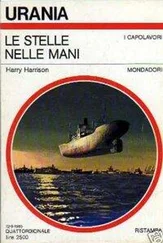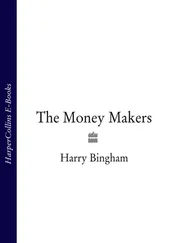‘I hadn’t even thought about the travel.’
‘As I say, I know you’ll want to talk it through with your wife …’
Those words – ‘your wife’ – almost sent an unaccustomed spurt of tears through Bryn’s rusted-up tear ducts. His wife . He’d had his problems with Cecily, no question, but she was his wife – or, rather, had been. He felt desolate and betrayed. ‘There’s nothing else?’
‘We’d like you to work with Rudy Saddler as his number two, if you could see your way to sorting things out with him. But either way … it’s your call. Let me know when you’ve talked to your wife. Cecily, isn’t it?’
‘Yes. Cecily.’ Bryn was stuck in his seat for a moment, cloddish and uncertain. He was a skilled negotiator, but van Ween was no pushover and van Ween held all the aces. Bryn could give up half his empire and more than half his glory to a newcomer he didn’t get on with, or travel the world’s least glamorous corners slogging his guts out for a penny here, a nickel there. ‘Thanks, Pieter. I’ll think about it. Get back to you.’
There was a third option which neither of them mentioned but both were aware of. Bryn could call a headhunter. Clear out. See what he could get somewhere else. It didn’t feel great, but it was an option.
‘OK.’ It was a dismissal, but friendly. ‘And believe me, Bryn. You have a good career here. Think long-term. Don’t make the mistake of moving on because of – because of a hiccup.’
‘Yeah. OK.’ He stood up to go.
Van Ween watched him carefully, appraising his man, knowing that Bryn’s ‘yeah, OK’ was as good as meaningless.
‘And Bryn, I understand your frustration, but we’ve put a real offer on the table. We won’t be sympathetic if … if you choose to head elsewhere.’
Bryn understood van Ween’s meaning. As with any senior banker, much of Bryn’s wealth was tied up in deferred bonuses, a hostage kept to encourage loyalty. The money was Bryn’s as long as he stayed with the bank, but it became the bank’s money if he chose to quit. Sometimes, if the bank nudged people out, it was generous, it decided not to add to the misery by hanging on to the precious cash. But van Ween was telling Bryn not to hope. If Bryn called a headhunter and quit, he’d wave goodbye to three quarters of a million pounds.
‘There’s one more here. The last of our hepatitis controls.’
‘Oh no, really?’ exclaimed Cameron. ‘That’s too bad.’
She went over to the cage – hardly a cage, even, more like a rat playground, full of fluffy white sawdust, plastic toys, feeding trays and hidey holes. The last of its inhabitants lay stretched out, nose just poking out of the darkened night area. Cameron snapped off her latex gloves, opened the cage door and reached in, picking out the little white corpse and stroking it, smoothing its whiskers. ‘Dammit,’ she said. ‘It’s Freddie. We didn’t need that. I was hoping that at least Freddie would survive.’
Cameron’s lab assistant, a delightful graduate student called Kati Larousse, rubbed Cameron’s shoulder and said gently, ‘At least it improves the stats, Cameron. And the experiment’s over now. This is the one hundred and eightieth day.’
‘We didn’t need the stats to look any better. They’re good enough already. Hell. I wish I’d stopped all this at a hundred and twenty days. Even ninety. We were way into statistical significance already by then.’
Larousse gave her boss a hug. ‘You’re the only researcher in the world who’d react like this. You carry out the most successful animal experiment ever undertaken in this field, and all you do is worry about your controls dying on you.’
‘How are the others?’
Cameron reached for the door to the neighbouring cage. A sign above it read ‘Herpes’, along with warnings about animal handling.
‘Gloves, Cameron. Careful.’
‘Damn my gloves.’
Cameron reached into the cage. This group of rats had been deliberately infected with the herpes virus one hundred and eighty days ago, and all but four were now dead. The ones that were still alive were lethargic and glassy-eyed, about to follow the twenty-six rats that had preceded them to the pearly gates. Cameron stroked the rats regretfully, apologetically even.
‘How about the others?’ she asked after a while.
‘HIV, you know. All dead. Hantavirus and Ebola virus, we’ve got eight and six left respectively.’
‘And the treated rats? No problems there?’
Larousse moved to the cages on the opposite wall. The cages were identical, except for one thing. The rats weren’t dead, they weren’t even dying. One hundred and eighty days before, they had all been injected with the exact same deadly viruses that the control groups had received, but nothing had happened. The rats bounced around their cages, coats glossy, eyes sparkling, squabbling over toys and fighting their way through tunnels and up ladders, like so many healthy puppies. They didn’t know it, but they owed their lives to Cameron’s Immune Reprogramming. Larousse used her hands to check inside the sleeping area, but they came away empty.
‘Nothing. No problems at all. Oh, except that this one has lost part of its tail.’
Cameron inspected the rat. It was thinner than the others, a constant target of playground bullying. ‘Benito. Shame. He had such a nice tail.’
Larousse let her boss linger round the cages a little longer before interrupting. The end of an experiment is the busiest part, collecting all the data which records the precise success or failure of the work. ‘I guess I should start taking blood samples from all the survivors?’
‘Right. Get it centrifuged and refrigerated. We can begin the lab analysis tomorrow.’
‘OK, sure. And … the controls, Cameron. These little guys are dying. You want me to …?’
‘Oh, sure, yes, of course. I mean, right away.’
‘How do you want me to do it?’ Larousse was gentle. Most experimenters didn’t care what happened to their animals at the end of an experiment, but Cameron Wilde wasn’t like that. There were different injections you could give to put a rat to sleep, and Cameron was bound to have views on the kindest method.
‘You know,’ said Cameron, ‘exactly like we did the others.’
‘I don’t understand. We didn’t do the others. They just died.’
Cameron stared at her assistant, slowly understanding what she had meant. ‘Oh, no. We’re not putting them down, Kati. I’d never … No way. We’re going to try and get the little guys well. Build them up again. We’re going to do the full Immune Reprogramming on all of them.’
‘Do the whole thing?’ Larousse was astonished. After a long and complex development period, Cameron’s Immune Reprogramming technique had been put to the test in this one amazing experiment. Nothing in scientific history had ever worked better – not on rats, anyway – but it was still time-consuming, laborious and expensive. ‘Do we have the funds, even?’
Cameron’s eyes flashed with anger. ‘I don’t care if we’ve got the funding. I’m not going to let these little guys die just because we can’t be bothered to cure them. Christ, if we don’t owe it to them by now … We’re going to get them better, and then they’re all going to go off to PEACH. If I can’t afford that, I’ll keep the little guys myself.’ PEACH was the Post-Experiment Animal Care Hostel – a pricey but deluxe outfit run by a couple of dedicated Boston animal-lovers.
‘Yeah, sure, Cameron. That’s fine. Actually, I’m delighted. That’s great news. God, I love working with you.’
Cameron stared around the room. Since the discovery of penicillin, medical history has all been about the search for the magic bullet: pills which wipe out a bug, leaving everything else intact. With bacteria, the search was successful. One by one, killer diseases like tuberculosis, scarlet fever, whooping cough and diphtheria began to fade out of existence – slain by the magic bullets of antibiotics. There was a time when scientists were optimistic that all diseases would follow suit, that infectious disease would literally be eliminated.
Читать дальше












